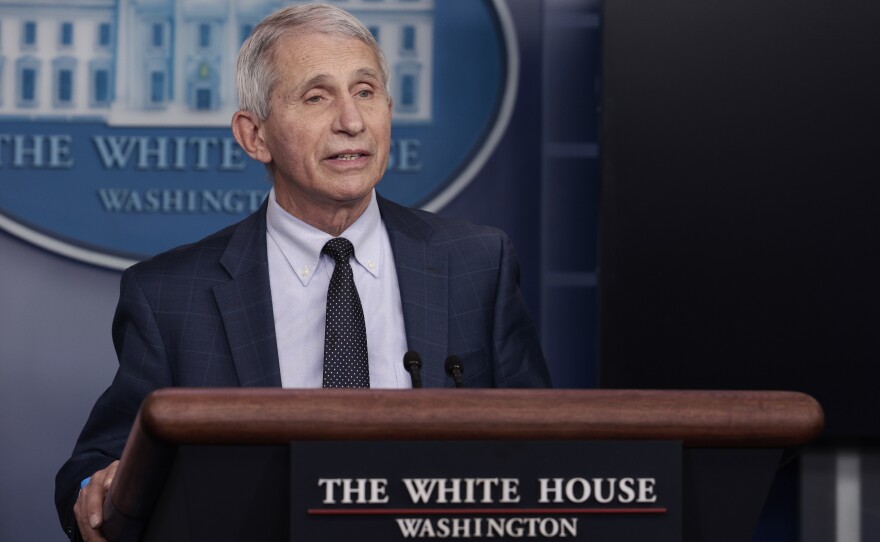The Centers for Disease Control and Prevention is considering altering its recommendations for people with COVID-19 after it got pushback on its new guidelines, Dr. Anthony Fauci said.
President Biden's chief medical adviser said there was "some concern" that the CDC told people to isolate for five days but did not recommend that they get a negative test before leaving isolation.
"That is something that is now under consideration," Fauci said Sunday during an interview on ABC's This Week.
On Monday the CDC cut the number of days it recommends COVID-positive people remain in isolation from 10 days to five if they are no longer showing symptoms. People are urged to wear masks for another five days after that to avoid infecting others.
The CDC said transmission generally occurs one or two days before symptoms begin and two to three days after. Health officials were also concerned that the high number of people testing positive with the virus and being forced to isolate — particularly essential workers — could cause major disruptions to the economy.
But the agency did not include anything in its guidance about testing negative for COVID before leaving isolation, something critics say should be included in the updated recommendations.
"Looking at it again, there may be an option in that, that testing could be a part of that," Fauci said.
"I think we're going to be hearing more about that in the next day or so from the CDC," he added.
Meanwhile, tests have been hard to come by for millions of people, with some waiting hours in long lines.
Copyright 2022 NPR. To see more, visit https://www.npr.org. 9(MDAzMjM2NDYzMDEyMzc1Njk5NjAxNzY3OQ001))







